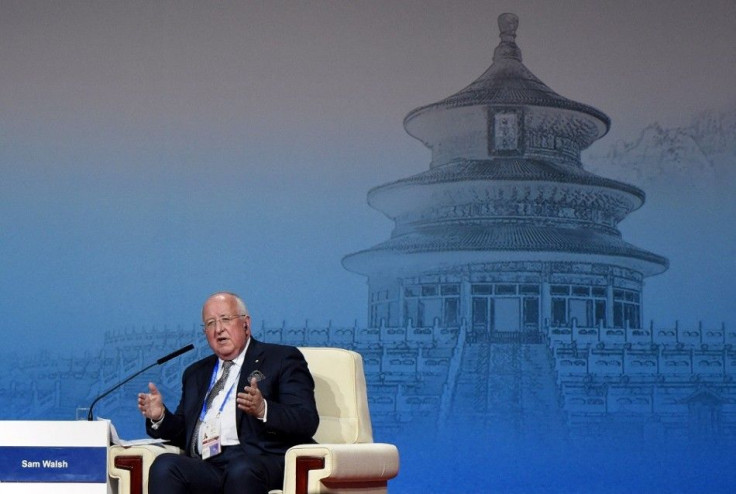Experts Say Rio Tinto-Glencore Merger Is Inevitable; Iron Ore Price Drops Below $70

A potential merger between Rio Tinto (ASX: RIO) and Glencore (LON: GLEN) could create the world's biggest mining company and dislodge BHP Billiton (ASX: BHP) from the top, a London expert said.
Merger expert Ian Hannam said the corporate marriage appears inevitable. "If not today, this deal will happen sometime in the near future," Bloomberg quoted Hannam.
Glencore had offered a merger to Rio in early October, but Rio rejected it on the ground that doing so would not be in the best interest of its stock holders. Another London analyst agreed the merger appears forthcoming but pointed out the psychological resistance to the buy-in because of the different corporate cultures between the two mining giants.
"Rio Tinto is the older statesman in the mining industry. Its origin go way back, and it's been the conservative mainstay of the industry ... Glencore is the aggressive new player, looking to make quite a dramatic looking to make quite a dramatic move," Bernstein senior analyst Paul Gait told Marketwatch.
He believes the cultural differences could be addressed, and if that happens, they would create a mining company worth $160 billion that would change the landscape of the commodity sector.
Creating a mega mining company would allow the merged firm to benefit from the economies of scale and lower cost of production so major miners could survive the continuous drop in commodity price due to oversupply and lower demand from China of the key-steelmaking ingredient.
YouTube/Financial Times
On Tuesday, the price of iron ore dropped below $70 per tonne for the first time in five years, Bloomberg reports. The price of ore with 62 percent content shipped to Qingdao went down 1.2 percent to $69.58 per dry metric tonne.
Gait pointed to the giant miners BHP and Rio for "pushing huge volumes into the lackluster demand environment."
As a consequence of the glut, investors are thinking more than twice if they would park their money in new mining project. Date released on Wednesday by the Bureau of Resources and Energy Economics (BREE) said that from May to October 2014, only three projects with a total value of $597 million reached the commitment stage. It is a 10-year low for number and value of projects, noted BREE which blamed declining commodity prices for investors' hesitancy to push for more mining ventures.
The only exception, though, is Australia's richest person, Gina Rinehart, who will begin export of iron ore from her Roy Hill mine in September 2015. Outside mining, Rinehart has forayed into infant milk formula and healthcare.






